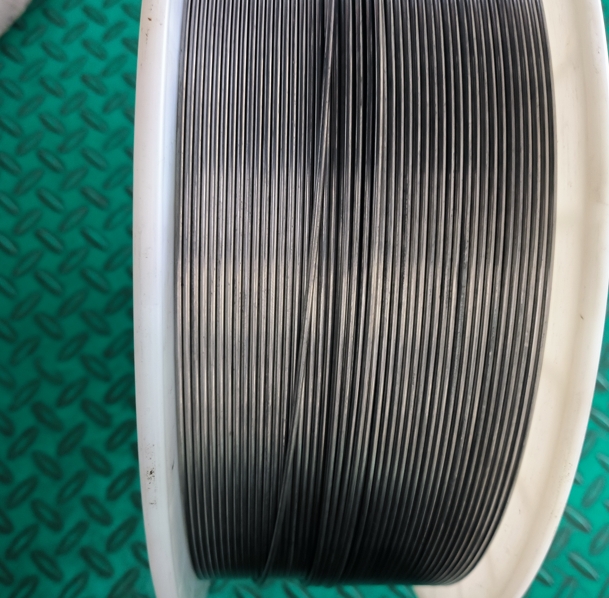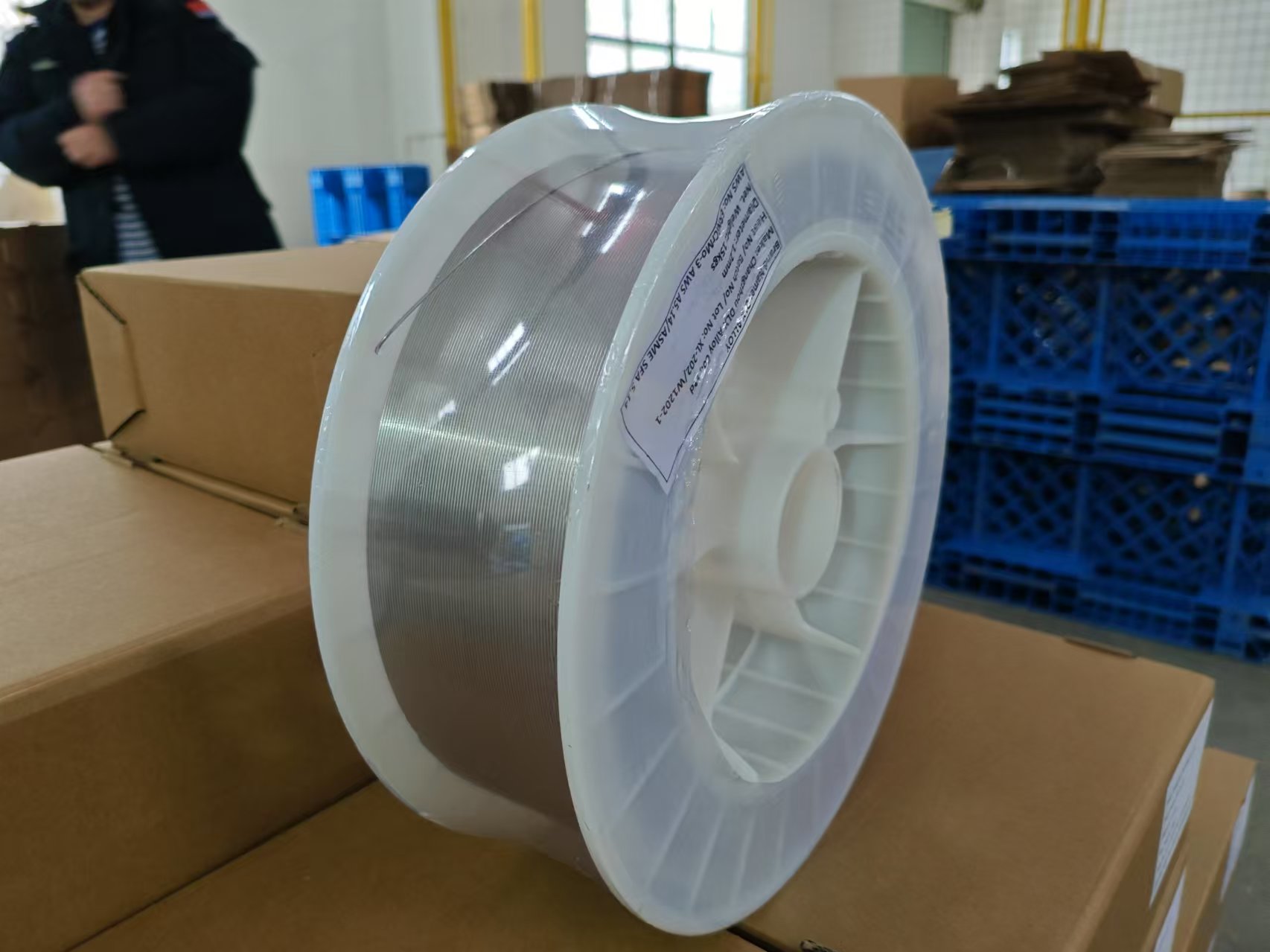Welcome to Jiangsu DZX Factory.
Email:sales11@dlx-alloy.com Mobile/Whatsapp:+86 199 0611 9641
Professional manufacturer of welding wires and spraying wires,over 22 years.
Whatsapp:+8619906119641
Email:sales11@dlx-alloy.com
Add:NO.32 West Taihu Road, Xinbei District, Changzhou, Jiangsu,China
Nickel Welding Wire
ERNi-1 Nickel Welding Wire for High-Purity Nickel Plating Applications
Product Details
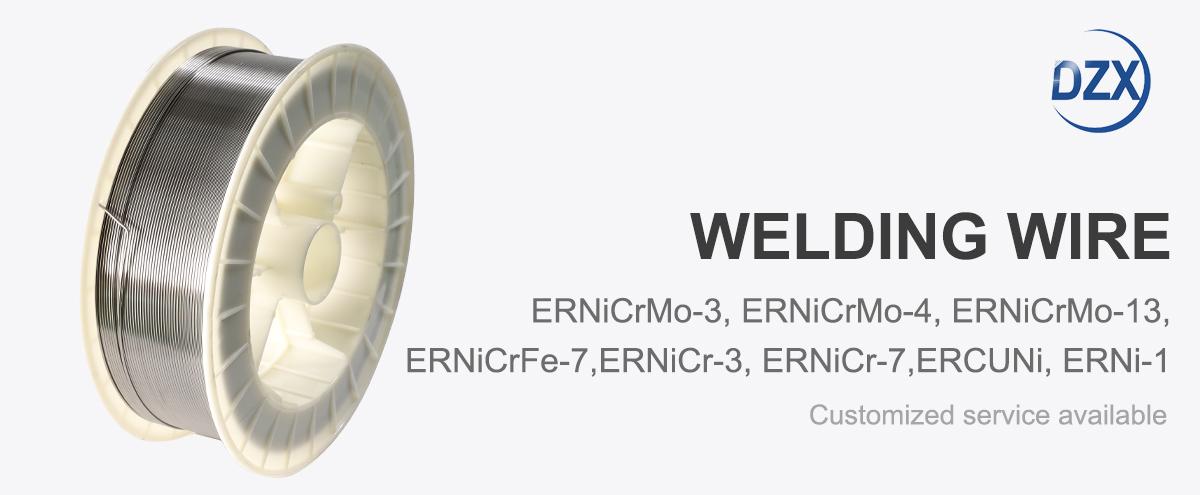
Our ERCuNi nickel Welding Wire is a game-changer for industries battling corrosion, especially in harsh marine environments. As a leading manufacturer, we’ve crafted this copper-nickel alloy wire to deliver unmatched performance where durability and resistance to saltwater are non-negotiable. Let’s dive into what makes our ERCuNi wire a go-to solution, explore the industry trends driving its demand, and see how it stacks up in real-world applications.
Product Introduction
Our ERCuNi welding wire, with its 30% nickel and 0.5% manganese composition, is engineered for strength and corrosion resistance. It’s perfect for joining copper-nickel alloys and dissimilar metals in environments exposed to seawater, chemicals, or extreme conditions. Available for TIG, MIG, and submerged arc welding, it offers versatility for projects of any scale, from shipbuilding to desalination plants. The wire ensures clean, strong welds with minimal spatter, making it a favorite for fabricators who value efficiency and quality.
What sets our ERCuNi apart? We prioritize consistency. Our wire is manufactured with strict quality controls, ensuring uniform composition and performance. It’s designed to reduce downtime, improve weld integrity, and cut long-term maintenance costs—critical for industries like marine and oil and gas.
| AWS Classification | Applications |
| ERNiCr-3 | Used for welding 600, 601, and 800 alloys and dissimilar welding between stainless steel and carbon steel |
| ERNiCrFe-7 | Suitable for welding nickel-chromium-iron alloys under ASTM B163, B166, B167, and B168 standards |
| ERNiCrFe-6 | Designed for welding steel to nickel-chromium-iron alloys, as well as stainless steel to nickel-based alloys |
| ERNiCrCoMo-1 | Used for welding nickel-chromium-cobalt-molybdenum alloys and various high-temperature alloys |
| ERNiCrMo-3 | Suitable for nickel alloy, carbon steel, stainless steel, and low alloy steel welding, primarily used for 625, 601, 802 alloys, and 9% nickel alloys |
| ERNi-CI | Used for welding commercially pure nickel, malleable cast iron, and gray cast iron |
| ERCuNi | Suitable for welding 70/30, 80/20, and 90/10 copper-nickel alloys |
| ERNiCu-7 | Used for welding nickel-copper alloys such as B127, B163, B164, and B165 |
| ERNi-1 | Designed for welding pure nickel castings and forgings, including those under ASTM B160, B161, B162, and B163 standards |
| ERNiFeMn-CI | Suitable for welding nodular cast iron, ductile iron, malleable cast iron, and gray cast iron, as well as their dissimilar welding to stainless steel, carbon steel, low alloy steel, and various nickel alloys |
| ERNiCrMo-4 | Used for welding nickel-chromium-molybdenum alloys, or for welding nickel-chromium-molybdenum alloys to steel and other nickel-based alloys |
| ERNiCrMo-11 | uitable for self-welding nickel-chromium-molybdenum alloys, dissimilar welding with steel and other nickel alloys, and also for cladding applications |
| ERNiCrMo-13 | Used for welding low-carbon nickel-chromium-molybdenum alloys |
| ENiCrMo-3 | Designed for welding nickel-chromium-molybdenum alloys, including 625, 800, 801, 825, and 600 |
| ENiCrFe-3 | Used for welding nickel-chromium-iron alloys and for dissimilar welding with carbon steel |
| ENiCrFe-2 | Suitable for welding austenitic steel, ferritic steel, and high-nickel alloys, also used for 9% nickel alloy welding |
| ENiCu-7 | Primarily used for welding nickel-copper alloys and their dissimilar welding with steel |
| ENiCrFe-7 | Ideal for welding 690 (UNS N06690) nickel-chromium-iron alloys |
| ENiCrMo-4 | Designed for C-276 alloy welding and most nickel-based alloys |
| ENiCrCoMo-1 | Suitable for welding nickel-chromium-cobalt-molybdenum alloys and various high-temperature alloys |
| ERCuNi | Used for welding forged or cast 70/30, 80/20, and 90/10 copper-nickel alloys |
| ENiCrMo-13 | Used for welding low-carbon nickel-chromium-molybdenum alloys |
| ENiCrMo-11 | Used for welding low-carbon nickel-chromium-molybdenum alloys |
| Welding Wire Type | Density (g/cm³) | Melting Point (°C) | Electrical Conductivity (% IACS) | Coefficient of Thermal Expansion (10⁻⁶/°C) | Tensile Strength (MPa) | Yield Strength (MPa) | Elongation at Break (%) |
| Carbon Steel Welding Wire | 7.85 | 1450 | 8-10 | 11.8 | 400-550 | 300-400 | 20-25 |
| Stainless Steel Welding Wire | 7.9 | 1350-1450 | 2-5 | 16-17 | 550-650 | 300-400 | 30-40 |
| Aluminum Welding Wire | 2.7 | 600-660 | >60 | 23.1 | 150-200 | 75-100 | >20 |
| Nickel Alloy Welding Wire | 8.4 | 1350-1400 | 1-2 | 13.1 | 600-800 | 400-600 | 30-40 |
| Welding Rod Type | Coating | Electrical Resistivity (10⁻⁶ Ω·cm) | Hardness (HV) | Heat Resistance (°C) | Tensile Strength (MPa) | Yield Strength (MPa) | Elongation at Break (%) |
| Carbon Steel Welding Rod | Acid coated, alkaline coated | 10-15 | 150-200 | < 450 | 400-550 | 300-400 | 20-25 |
| Stainless Steel Welding Rod | Acid coated, alkaline coated | 60-80 | 200-400 | < 800 | 550-750 | 350-450 | 25-35 |
| Cast Iron Welding Rod | Alkaline coated | 90-120 | 250-450 | 300-600 | 300-500 | 150-300 | 10-20 |
| Nickel Alloy Welding Rod | Alkaline coated | 80-100 | 200-300 | < 1200 | 700-900 | 450-650 | 20-35 |
For more other size details, pls directly contact us
The demand for corrosion-resistant materials is skyrocketing, driven by growth in marine, offshore, and renewable energy sectors. According to recent industry reports, the global welding consumables market is projected to grow at a CAGR of 5.5% through 2030, with nickel-based alloys like ERCuNi leading the charge in marine applications. Why? The push for sustainable infrastructure, like offshore wind farms and desalination plants, requires materials that can withstand harsh environments without frequent repairs.
Another trend is the shift toward greener technologies. Desalination and renewable energy projects are booming, especially in coastal regions, where ERCuNi’s ability to resist saltwater corrosion is a perfect fit. Meanwhile, shipbuilding and offshore oil platforms continue to rely on copper-nickel alloys for their proven durability. Our ERCuNi wire aligns with these trends, offering a reliable solution for industries prioritizing longevity and eco-friendly operations.
Applications
Our ERCuNi welding wire shines in a range of applications:
Marine and Shipbuilding: From hulls to propellers, it’s used to weld components exposed to constant seawater, ensuring long-lasting repairs.
Offshore Platforms: Oil rigs and wind turbines demand materials that resist corrosion and fatigue—ERCuNi delivers.
Desalination Plants: Piping and equipment in desalination systems rely on ERCuNi for its ability to handle saline environments.
Chemical Processing: Its resistance to certain chemicals makes it idealස
System: Applications (continued)
ideal for joining components in chemical plants where corrosion resistance is critical.
This versatility makes our ERCuNi wire a must-have for industries needing reliable, long-lasting welds in tough conditions.
Comparison Table: ERCuNi vs. Other Nickel-Based Welding Wires
Parameter | ERCuNi | ERNiCrMo-3 (Inconel 625) | ERNiCu-7 (Monel 400) |
|---|---|---|---|
Composition | Copper-nickel (30% Ni, 0.5% Mn) | Nickel-chromium-molybdenum | Nickel-copper (65% Ni, 30% Cu) |
Corrosion Resistance | Excellent (seawater, saline) | High (acids, high temps) | Very good (seawater, acids) |
Primary Applications | Marine, shipbuilding, desalination | Aerospace, oil & gas | Marine, chemical processing |
Welding Processes | TIG, MIG, SAW | TIG, MIG, SAW | TIG, MIG, SAW |
Temperature Resistance | Moderate (up to 350°C) | High (up to 1000°C) | Moderate (up to 500°C) |
Tensile Strength | ~350 MPa | ~760 MPa | ~480 MPa |
Cost-Effectiveness | High for marine applications | Moderate (premium for high temps) | High for chemical environments |
Industry Trend Fit | Ideal for marine and green energy | Suited for aerospace and oil | Strong in marine and petrochemical |
When it comes to ERCuNi welding wire, we stand out from the competition. Our wire is produced with cutting-edge manufacturing techniques, ensuring superior consistency and weld quality. Unlike others, we focus on rigorous quality testing to guarantee every spool meets the highest standards, reducing defects and rework. Our customer support team is always ready to assist with technical guidance, ensuring you get the most out of our product. Plus, we offer competitive lead times and flexible ordering options, making us a trusted partner for projects of any size. Our commitment to innovation means we’re constantly improving our ERCuNi wire to meet evolving industry demands, giving you a reliable edge in your welding operations.
Why Choose Us?
Our ERCuNi nickel welding wire isn’t just a product—it’s a solution built for the toughest environments. Whether you’re welding ship hulls, offshore rigs, or desalination systems, our wire delivers consistent, high-quality results. With industry trends leaning toward durability and sustainability, our ERCuNi wire is designed to meet those needs head-on, offering corrosion resistance, ease of use, and cost-effective performance. Choose us for a welding solution that’s as tough as the environments you work in.
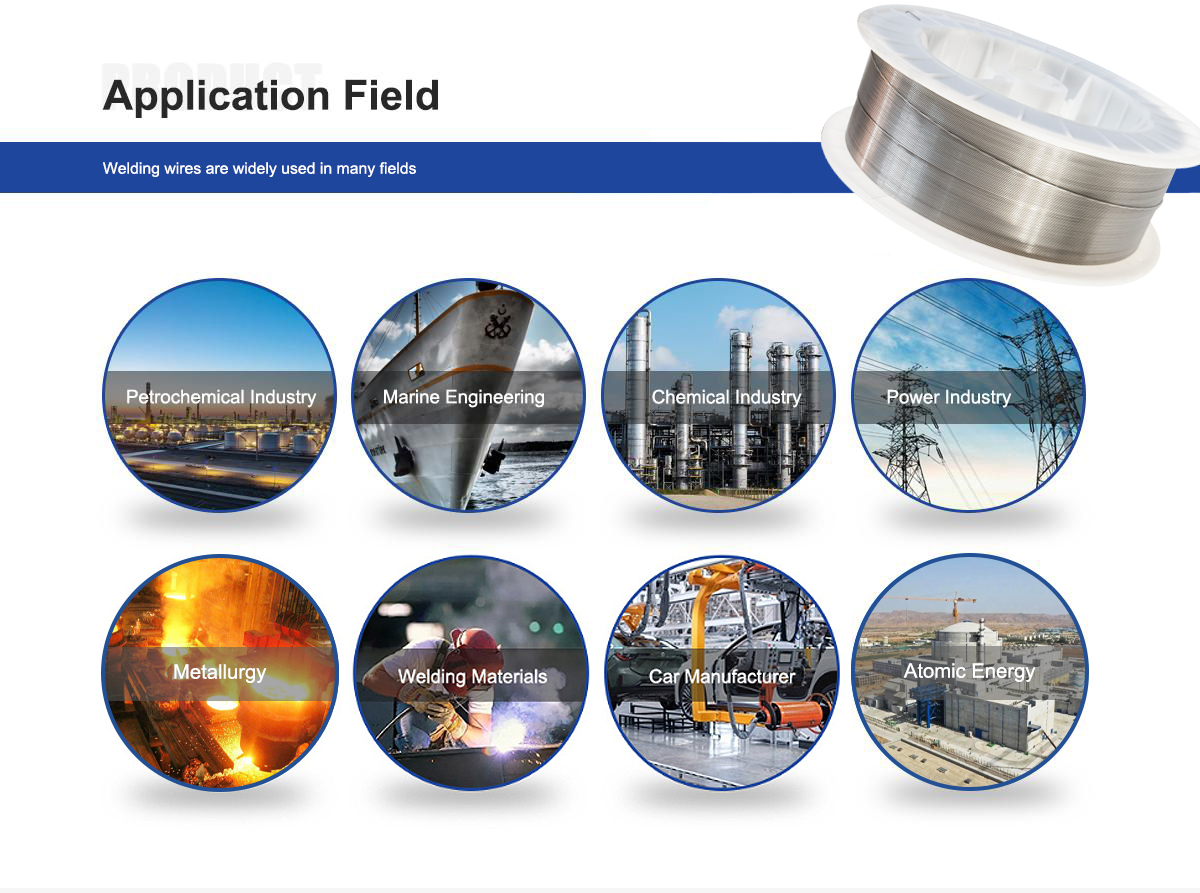
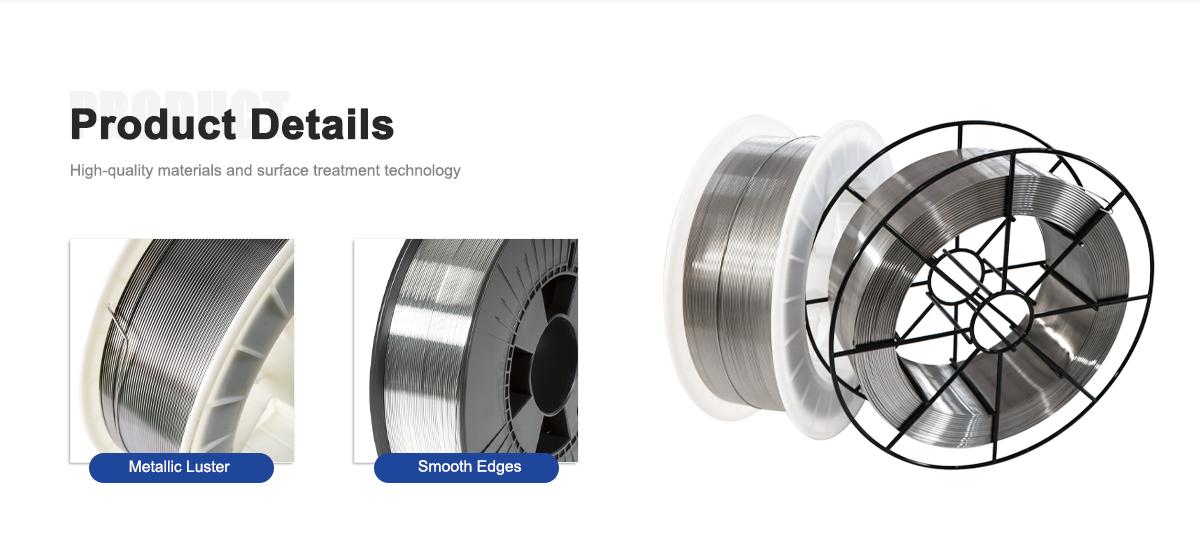
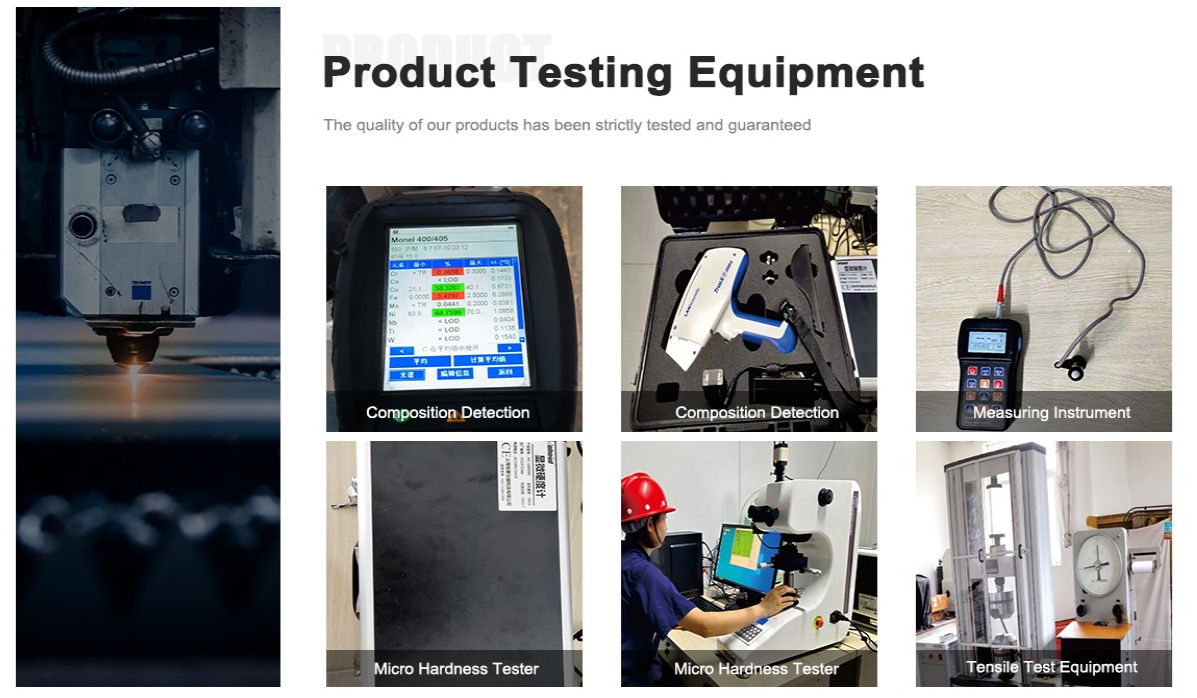
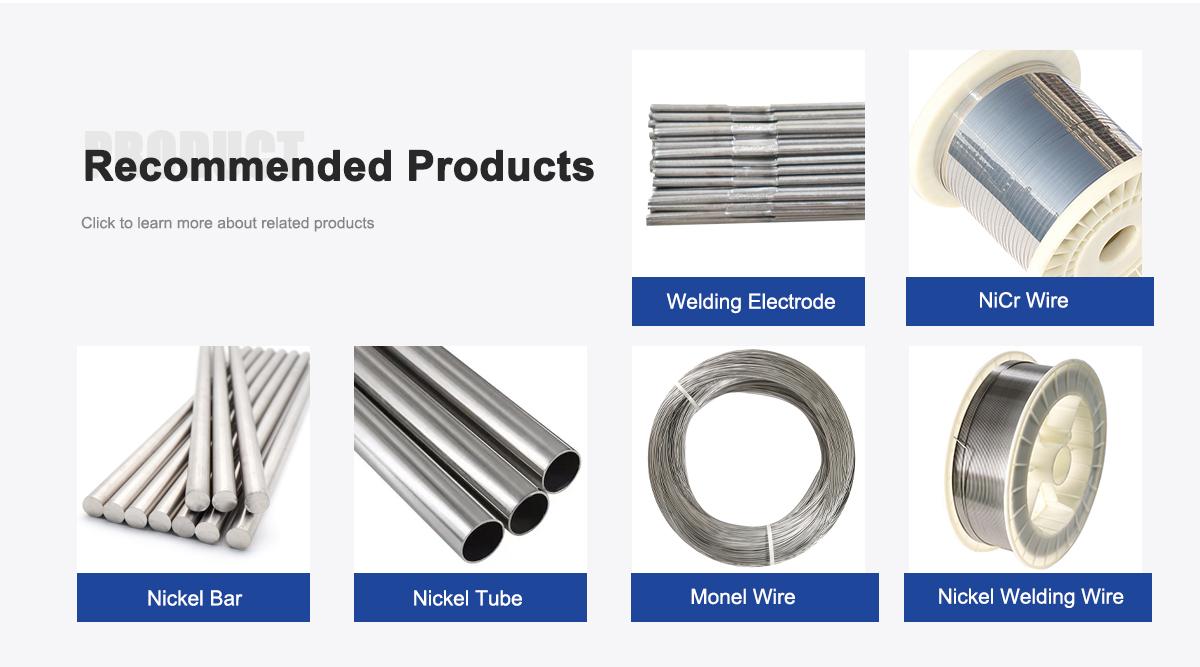
About Us:
Our 12,000㎡ factory is equipped with complete capabilities for research, production, testing, and packaging. We strictly adhere to ISO 9001 standards in our production processes, with an annual output of 1,200 tons. This ensures that we meet both quantity and quality demands. Furthermore, all products undergo rigorous simulated environment testing including high temperature, high pressure, and corrosion tests before being dispatched, ensuring they meet customer specifications. We also provide chemical analysis reports for every FeCrAl alloy, NiCr alloy, and other products purchased.
For all our clients, we offer timely and multilingual after-sales support and technical consulting, helping you resolve any issues swiftly and efficiently.
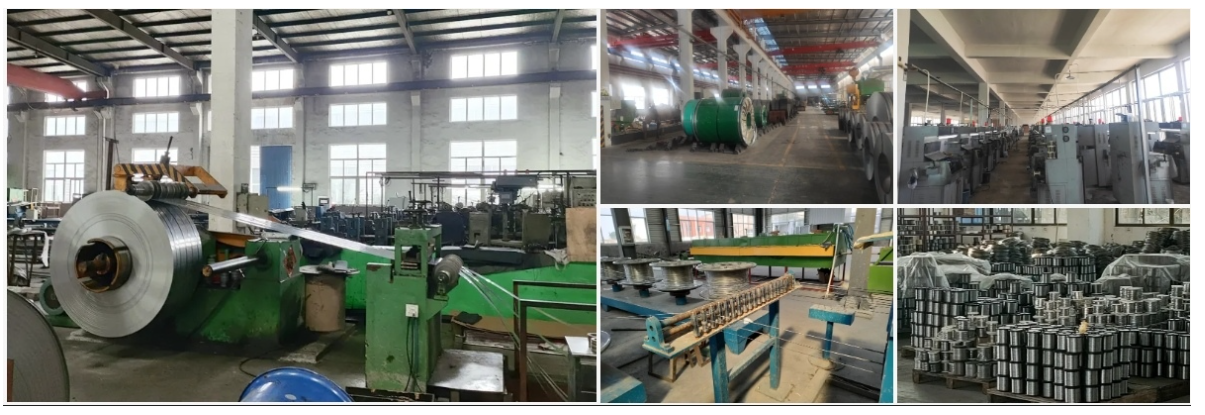
Client Visits
Building Stronger Partnerships
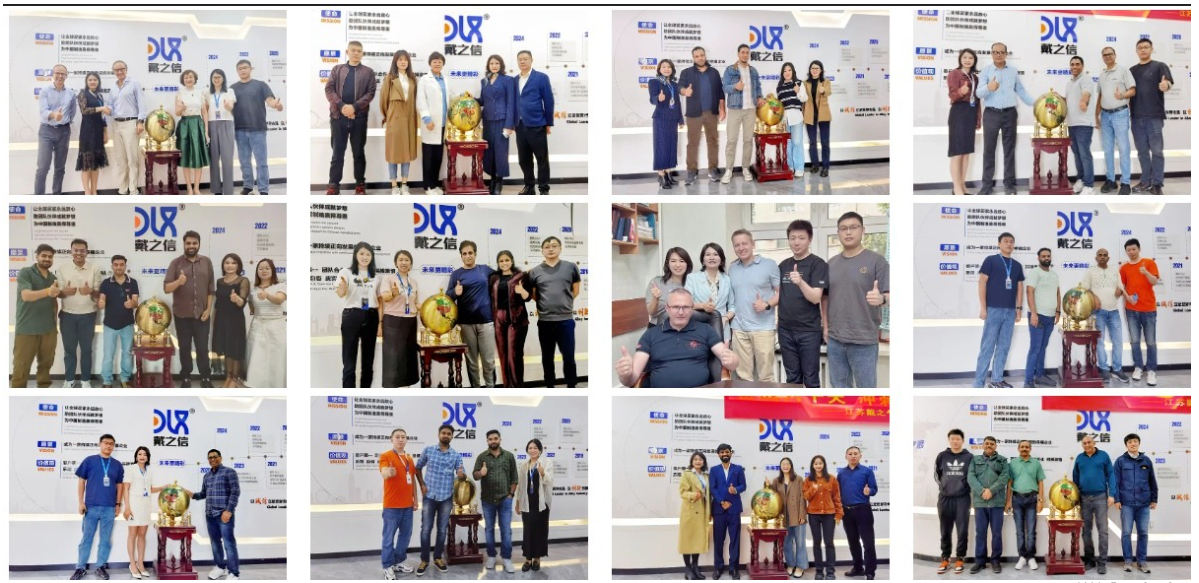
We support all kinds of testing:
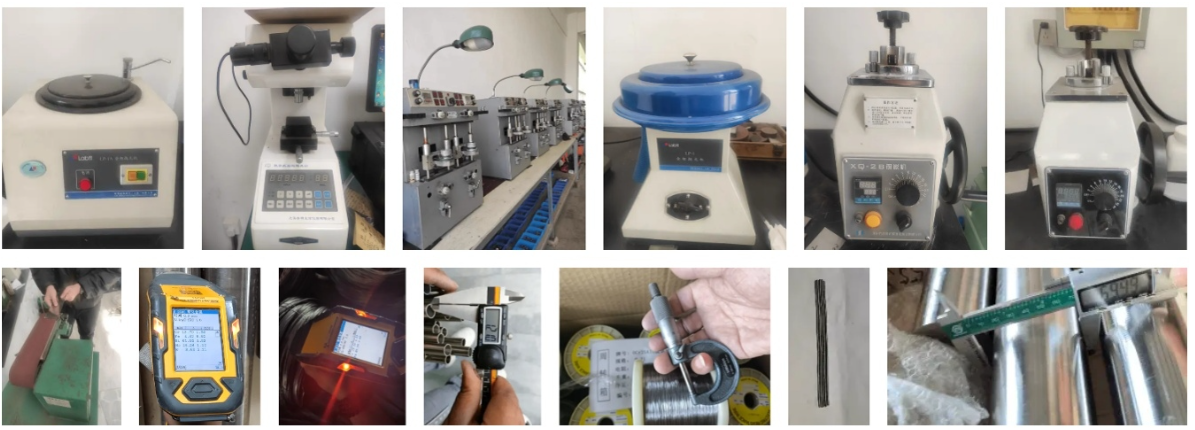

1. What is ERCuNi welding wire made of?
ERCuNi is a copper-nickel alloy welding wire, typically containing 30% nickel and 0.5% manganese, designed for excellent corrosion resistance.
2. What applications is ERCuNi welding wire best suited for?
It’s ideal for marine environments, shipbuilding, offshore platforms, and chemical processing equipment where corrosion resistance is critical.
3. Which industries commonly use ERCuNi welding wire?
Marine, oil and gas, chemical processing, and desalination industries rely on ERCuNi for durable welds in harsh conditions.
4. Can ERCuNi welding wire handle seawater exposure?
Yes, it’s specifically designed to resist corrosion in seawater, making it perfect for marine and offshore applications.
5. What welding processes work with ERCuNi wire?
It’s compatible with TIG, MIG, and submerged arc welding, offering flexibility for various project needs.
6. How does ERCuNi compare to other nickel-based welding wires?
ERCuNi excels in corrosion resistance, especially in saline environments, while maintaining strong mechanical properties compared to other nickel alloys.
7. What are the benefits of using ERCuNi in high-corrosion settings?
It provides long-lasting welds, reduces maintenance costs, and ensures structural integrity in aggressive environments like seawater or chemical plants.
8. Is ERCuNi welding wire cost-effective for large-scale projects?
Absolutely, its durability and resistance to corrosion minimize repair costs, making it a smart choice for long-term projects.

